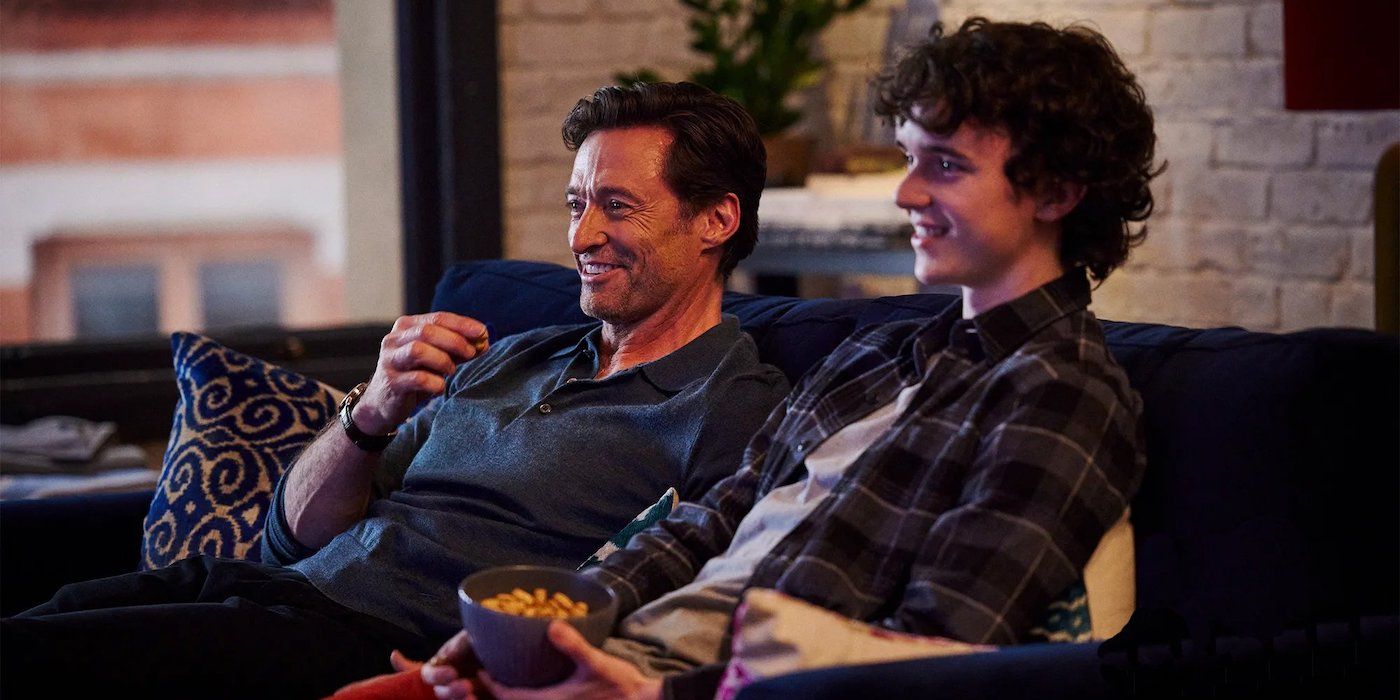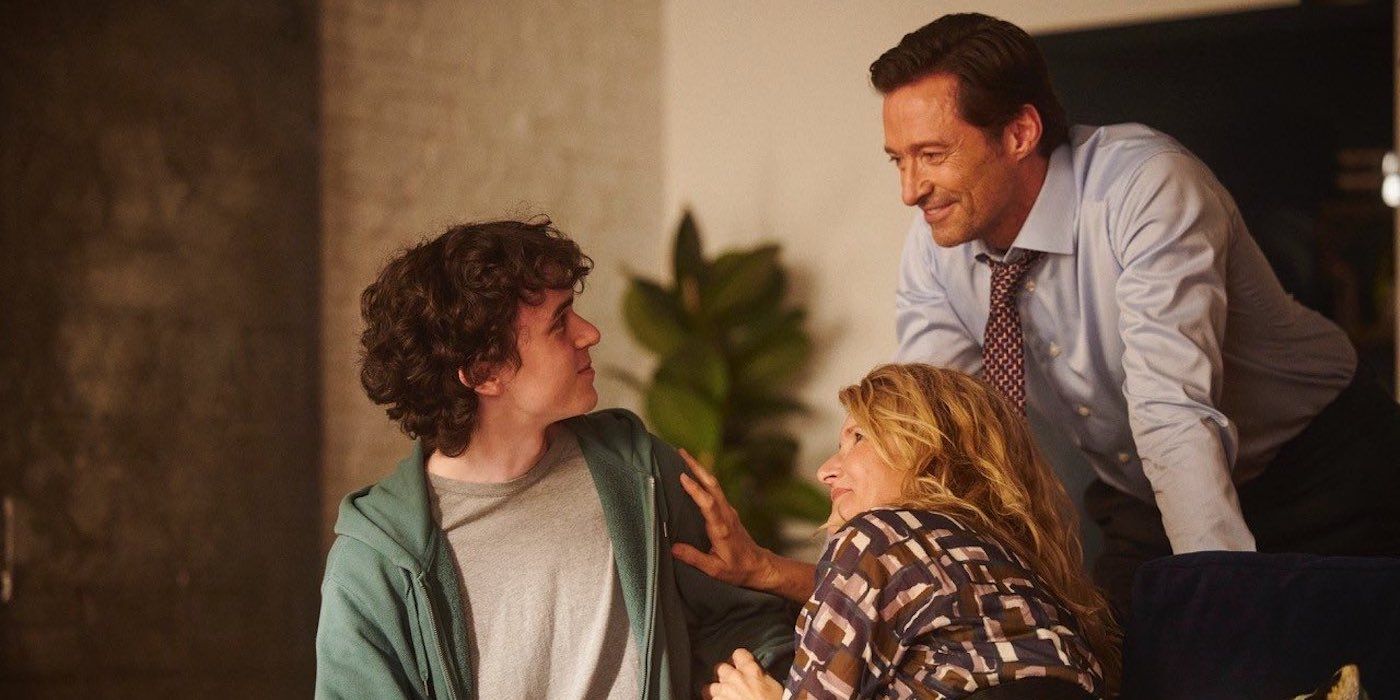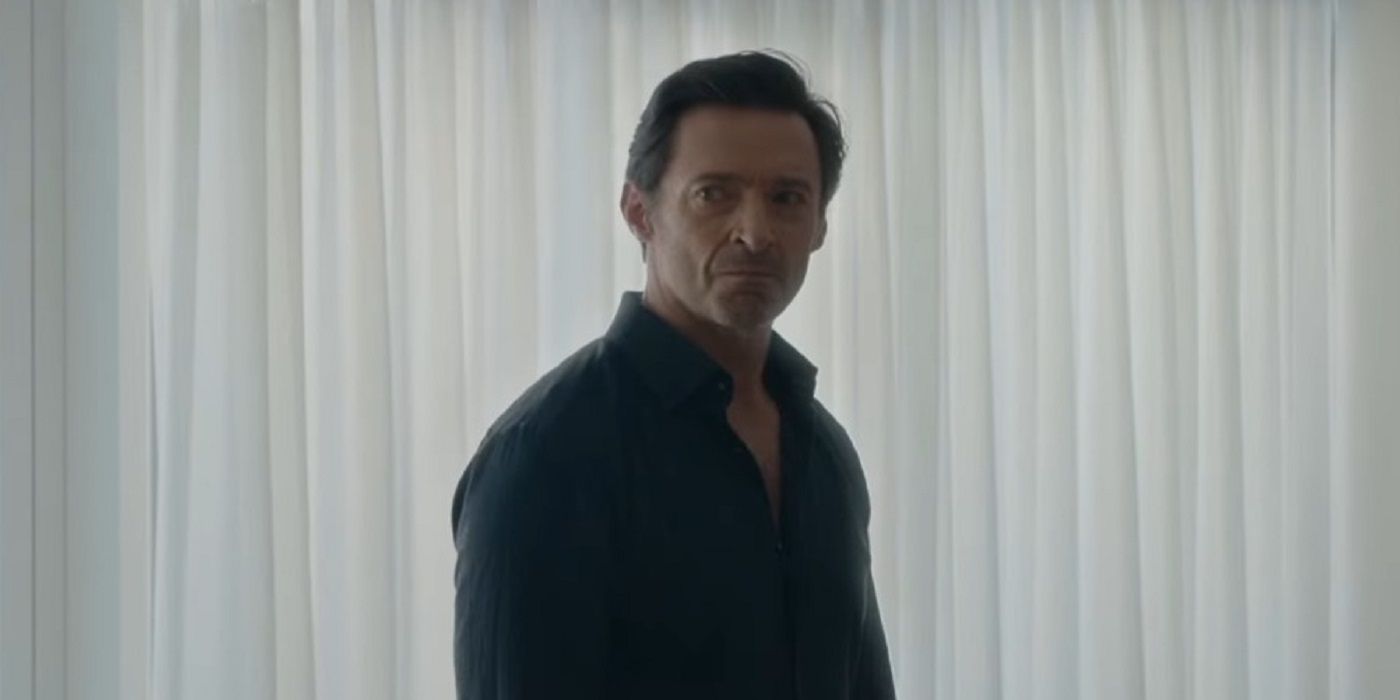This review was originally part of our coverage for the 2022 Toronto International Film Festival.
In 2020, Florian Zeller released his directorial debut, The Father, a tremendously moving and powerful story about the horror of dementia and the toll that disorder takes on his family and those around him. The Father earned Zeller and his co-writer Christopher Hampton an Academy Award for Best Adapted Screenplay (based on the play Le Père, which Zeller also wrote), and won Anthony Hopkins his second Oscar for his portrayal of the title character. Zeller’s first film took a deeply tragic and shockingly honest look at a family dynamic we rarely see, and in doing so, created a deeply affecting first film that made Zeller a riveting filmmaker to watch.
As a playwright, Zeller wrote a trilogy of plays, which began with The Mother, followed by Le Père (The Father), and concluded with Le Fils (The Son). For his second film, Zeller has decided to adapt the last film in this trilogy for The Son, and once more, Zeller has reunited with Hampton on the screenplay. Yet while The Father felt like a sincere, candid look at a tragic experience, The Son is the polar opposite: a film that never feels genuine and misses the humanity that made Zeller’s debut such a masterwork.
Several years after his parents got a divorce, Nicholas Miller (Zen McGrath) decides he no longer wants to live with his mother Kate (Laura Dern). Instead, Nicholas wants to live with his father Peter (Hugh Jackman), who is living with his new partner Beth (Vanessa Kirby) and their new baby. Nicholas has been skipping school for over a month, instead, deciding to walk around the streets of New York City all day. He states that life has been weighing him down and that he wants something to change. Nicholas’ attitude scares his mother, and Peter hopes that he can help his son deal with this clearly difficult time in his life.
It’s clear from the very beginning that Nicholas is suffering from a deep depression, one that he wants to shake somehow, and that Peter wants to mostly avoid, hoping for the best and that everything will eventually be fine. Peter remembers Nicholas as he used to be as a child, and now, just assumes this is a phase that will pass eventually—despite the constant warning signs and Nicholas’ statements that he doesn’t feel right. Nicholas is throwing red flags all over the place, while his family mostly waits for Nicholas to go back to the normal, carefree child he once was.
Like dementia in The Father, this type of familial struggle with severe depression is certainly a topic that should be approached with care and understanding. This is an important subject, and one that deserves a compassionate look that Zeller simply can’t provide here. Even The Father was able to manage moments of levity and moments that were so true, the audience couldn’t help but laugh. The Son, however, is stark from start to finish, and one that only tackles these issues on a surface level. Instead of showing us how scared and uncertain Nicholas is in this story—again, like Zoller did with Hopkins’ character in The Father—The Son focuses on the family and how Nicholas’ pain negatively impacts them.
In one scene, Peter goes to his father Anthony (played by Hopkins), and it’s clear Peter still has animosity toward his father. When Peter begins to talk about his own son, Anthony takes this as a hint that Peter is trying to brag about how he’s a better father than Anthony ever was. To this, Anthony states that Peter should “just fucking get over it.” While it’s clear that Peter would never make such a blunt argument to Nicholas’ own depression, there is this sort of idea that Nicholas’ life isn’t nearly as hard as Peter’s life, and that maybe the best course of action for Nicholas might actually be to “just fucking get over it.”
These complex topics and generational traumas are all interesting in theory, but with The Son, they’re all handled in a stilted and awkward way. In some scenes, The Son’s performances almost feel like aliens trying to act like humans recreating emotions, and some moments wouldn’t have felt out of place in The Room. Even reliable actors like Jackman and Dern suffer under this material, and at least Jackman improves the further the traumas of this narrative unravel themselves. Kirby is also quite good, but that largely has to do with her being an outsider looking in on these familial issues. But more unfortunate is newcomer McGrath—not necessarily because is performance is bad, but because Zeller and Hampton’s screenplay doesn’t give Nicholas much depth beyond being a sad seventeen-year-old. Even worse is the emotional manipulation Zeller presents in relation to Nicholas. For example, Nicholas mentions that he knows his father keeps a gun in the laundry room, and in case we forget about Chekov’s dramatic principles, Zeller continuously returns to the perpetually spinning washer, a morbid reminder that the worst can still happen if we ever get too complacent in this story.
Whereas The Father made its audience feel exactly what the eponymous character was feeling, The Son tells instead of shows, reminding the audience at every stop how they should feel, whether directly through dialogue, or Hans Zimmer’s grandiose score that builds or tears down the audience at its will. Zeller has made a world so bleak and so suffocating, we begin to feel just how trapped Nicholas feels—even if not in the way that Zeller intended.
The Son is attempting to show the weight of depression, the unpredictable nature of such a mental state, and how that feeling can be unexplainable for those suffering through it, and yet Zeller’s overblown direction and script that feels more alien than honest, a somber affair without the emotional impact that a story like this desperately needs. With The Son, Zeller is trying to bring the same sincerity he brought to The Father into his second film, and instead, The Son unfortunately feels false throughout.
Rating: C-
The Son is in theaters now.



